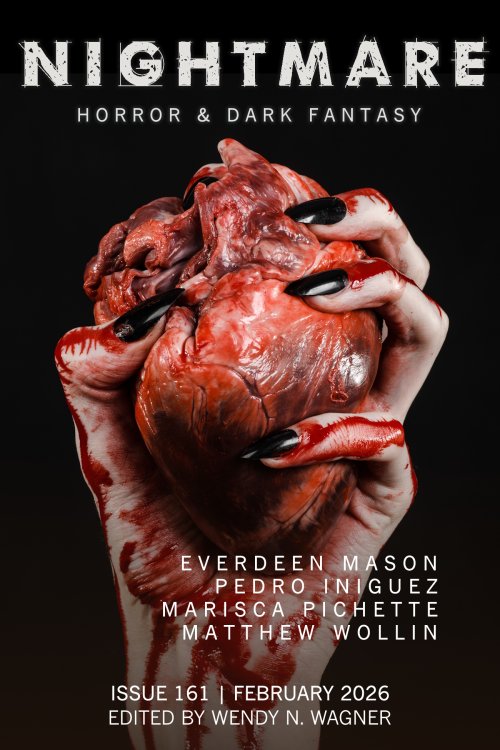Your story “Hungry Ghosting” gives us a chilling glimpse into an inhospitable underworld which is powered by an app—as opposed to traditional burnt offerings. What first gave you the idea to explore the relationship between technology and the afterlife?
Honestly, I kept hearing these online dating horror stories from friends and then I had a conversation about Maxine Hong Kingston’s book The Woman Warrior and something just clicked into place. In the opening of that book, the main character shares a story about her aunt who died. The family refused to talk about her, actively erasing her existence, and I was thinking about this idea of intentionally deciding not to take care of an ancestor in the afterlife. That got me wondering how a resourceful woman, a woman who refuses to be erased, might get along as a ghost if nobody was providing for her. How would she provide for herself? How would she get by in spite of it all? Combine that with the general context of online dating—especially some of the ickier aspects of it where race and gender are concerned—and this ghost started to take shape.
Were the practices of “Ghost Month” a part of your personal experience? Is there an aspect of these traditions that has been lost in modern times?
I actually didn’t grow up practicing these traditions. My dad was white, and my mom grew up in British Hong Kong, so the Chinese traditions that did and didn’t make it into my household (for a variety of reasons) are interesting. I don’t know when I first learned about the Ghost Month and about paper offerings, but I must have been pretty young because I’ve been interested in and curious about them for as long as I can remember. Growing up in a predominantly white community, I never really had access to these practices myself, so I was left to my own imagination and the random mentions of them I’d come across in books I picked up from the library or the local thrift shop. Maybe that’s part of where the seed of this story comes from: my own fascination with cultural traditions my family didn’t practice.
Depictions of hungry or vengeful ghosts tend to be told through the eyes of their human victims, but with this story, I found myself fully on the side of the narrator, even as we saw the results of her deadly appetite. What was it like to write a story from this perspective?
It was ridiculously fun! Don’t judge me too harshly, but I had such a good time writing this story. At one point, I was laughing so much that my partner, who works from home, came out of his office to find out what was happening. Nothing to see here, just killing off a character in my story! Part of that joy comes from the fact that in some ways, this story is a revenge fantasy. I’ve never experienced online dating myself, but I’ve experienced a lot of the kinds of racism this character is subjected to. We live during a time when many people like to think of themselves as not being racist, but then they’ll say these things that reveal how clueless they are about how racism works, or that expose the depth of their discomfort with talking about race. I’m definitely not saying those people deserve to die, but to fictionalize an extreme outcome for them that stems from their unchecked racism was interesting because here I am giggling like a child as I write their deaths, but what I’m really sitting with is this larger issue of how harmful racism is in all its forms. How it chips away at you and is so pervasive. Yet here’s this character who’s already dead, who literally can’t be harmed further, and she’s able to capitalize on these men’s expectations and desires and use them to provide for herself without any help, thank you very much. That’s where the joy came from: from this character who learned to fend for herself, who refused to accept destitution as her fate, who took what these guys offered her (pun totally intended, sorry!) and ran with it.
When I first read this story, I was immediately drawn into the supernatural aspects, but I found that what really stayed with me was how easily the men replaced the narrator’s actual identity with their preferred versions, based on their objectification of Asian culture. In your opinion, how does horror lend itself to exploring this dynamic?
I’m so glad you asked this question because, to me, this ability to reflect societal anxieties back at us is one of the most powerful aspects of horror. I think it’s pretty horrifying how people can look at a person standing right in front of them and see this other image that’s completely different from reality. That kind of imagining comes out of a larger societal problem where Asian Americans are viewed through this exoticizing and fetishizing lens. It’s a cultural framework with a long history, but the gist of it is that Asians (and other BIPOC) in the US are subjected to fantasies about them that abound in the mainstream. And unfortunately, a lot of mainstream media still buys into racist stereotypes about Asian and Asian American people and cultures. This is where horror can be incredibly powerful because at the heart of a lot of horror (and this is definitely true of my own writing) lies a kernel of truth—fear or pain that has roots in reality. But since terrifying things are supposed to happen in horror, pushing everyday racism so far beyond the ordinary enables us to dismantle and examine what’s truly horrific at the heart of these normalized social practices and views.
What’s next for you? Do you have any upcoming projects you’d like to talk about?
Oh, I’m always writing something! I’ve got a few short stories in the pipeline—a neo-western rom-com, some body horror, a dragon story. I’m also working on a cozy mystery set in a fictionalized version of the place I live now, and that’s been incredibly fun to write. It’s a wildly different experience to write longform fiction (especially something that could, if given the opportunity, expand beyond a single book to become a whole series), and it’s been pretty weird for me to write something without any speculative elements in it. Then again, I guess it’s not that far removed from my other stuff, since people are still getting murdered.








